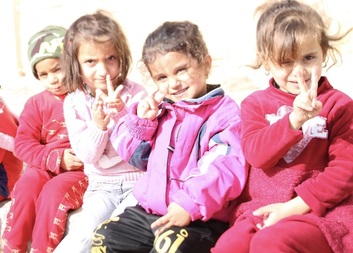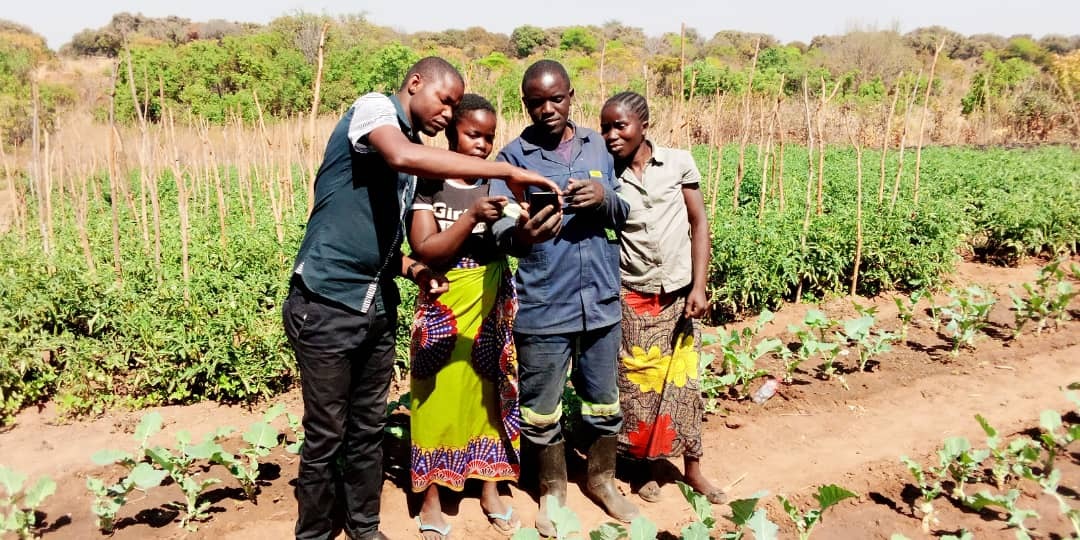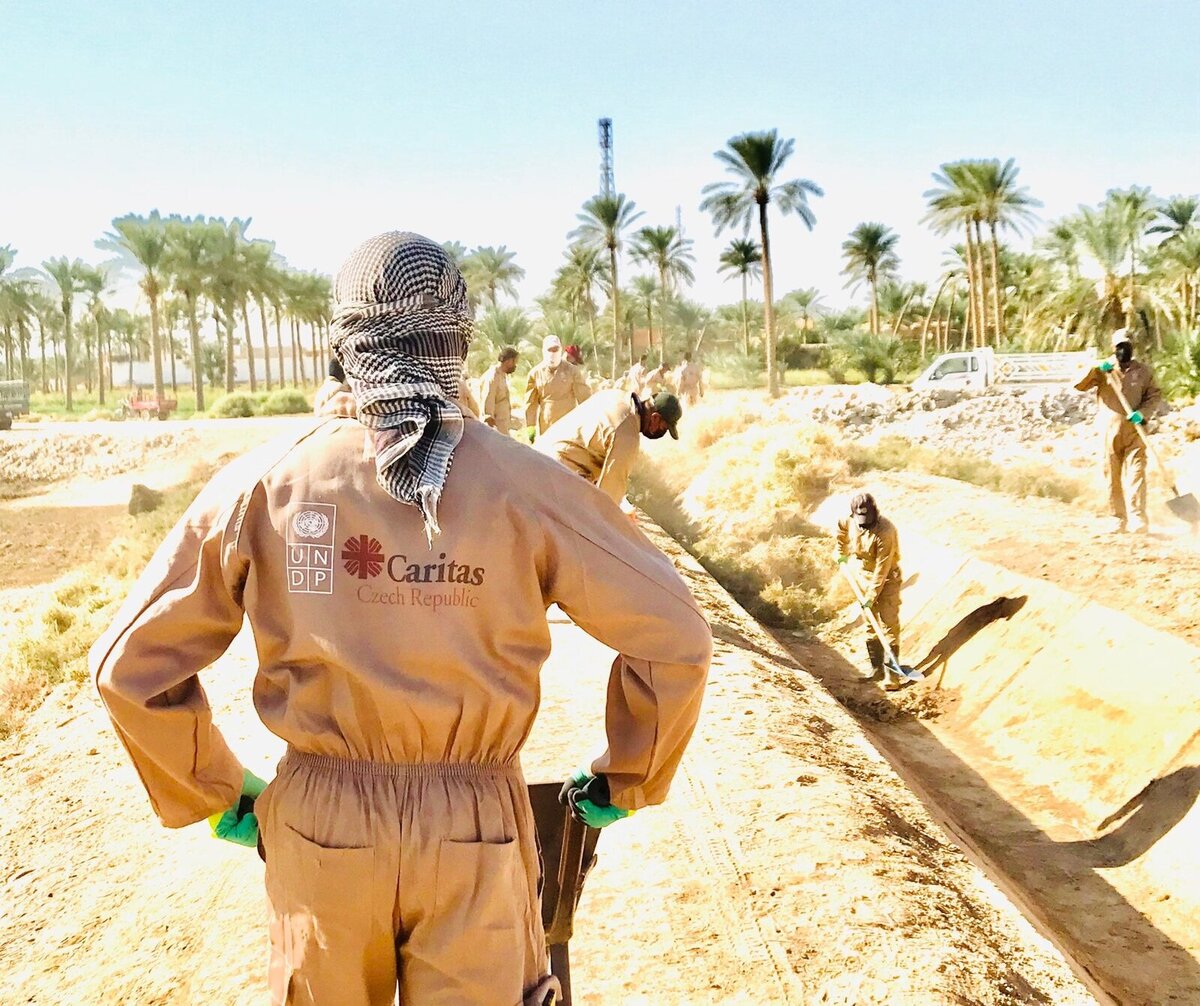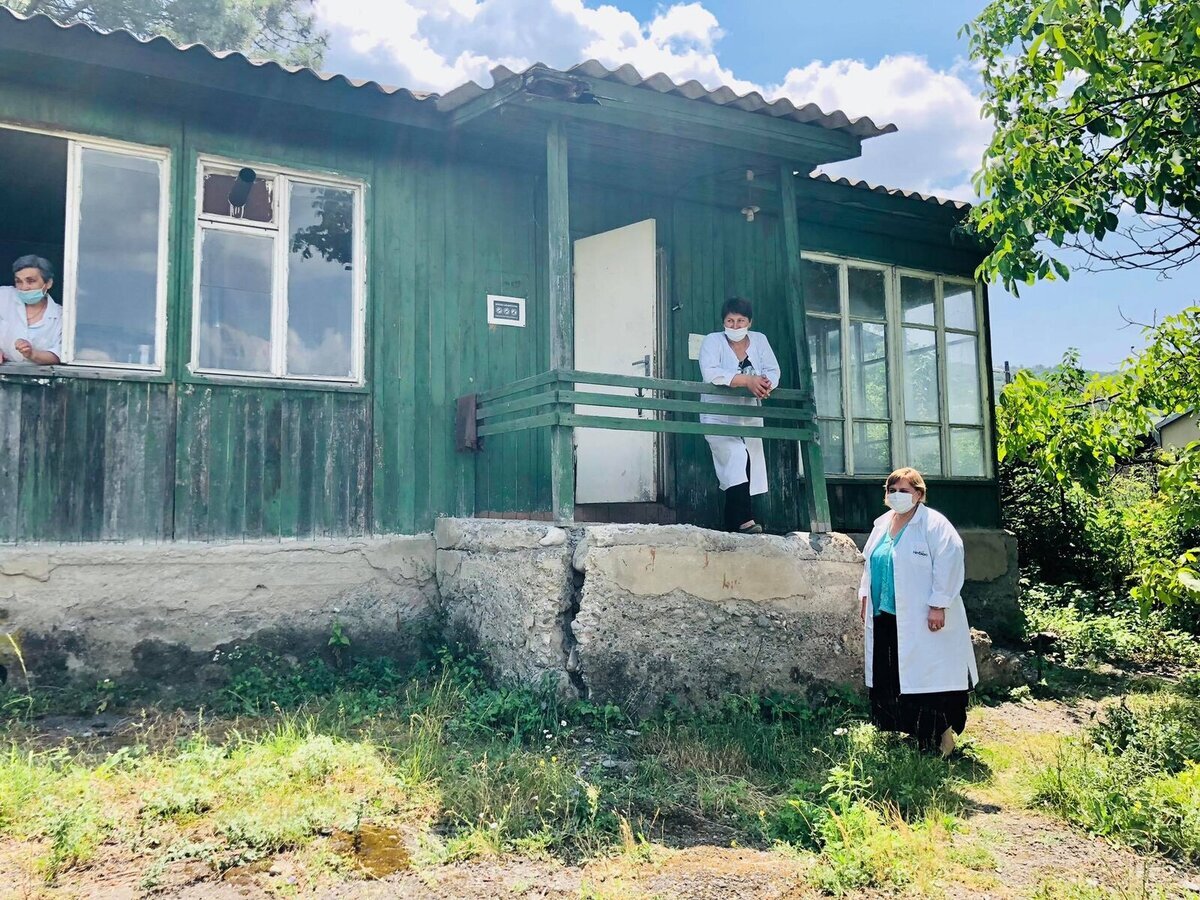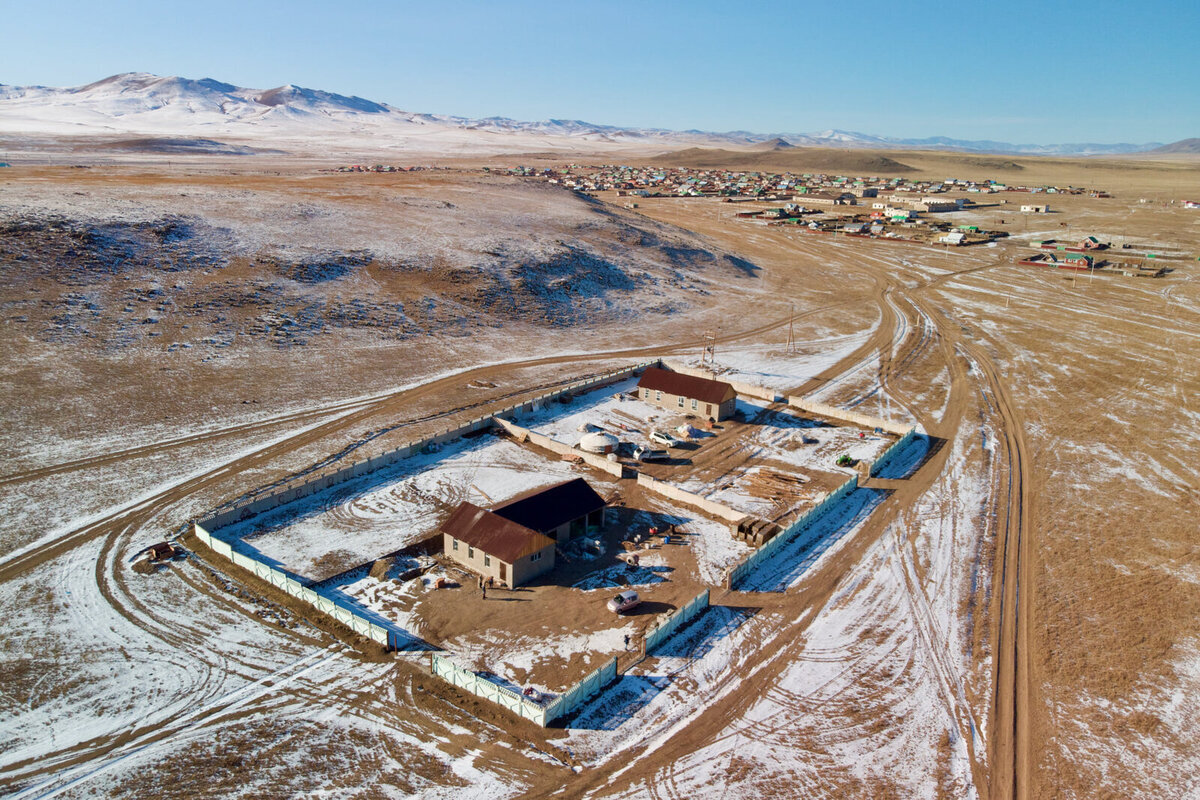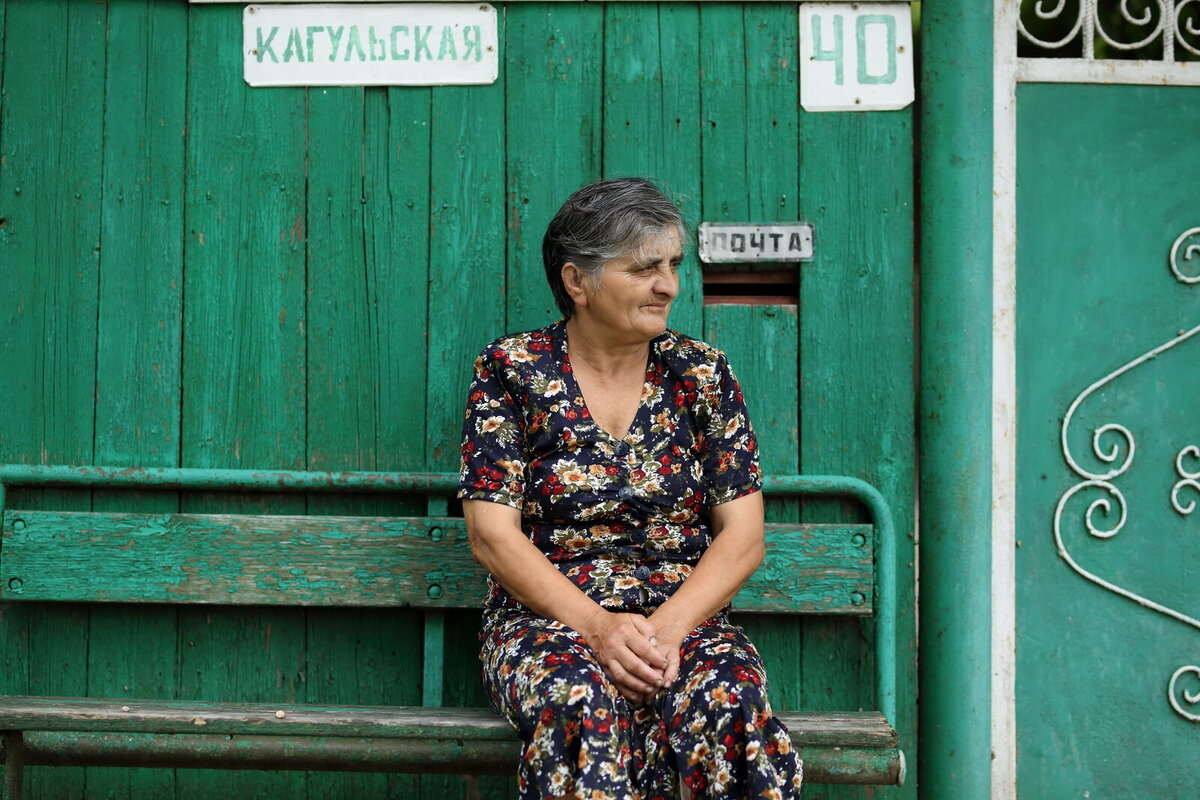When we were writing a summary of the previous year at the beginning of last year, we had no idea how challenging 2021 would be. But despite all the obstacles that the second pandemic year brought, we have achieved great things at Caritas Czech Republic. Whether it was introducing a mobile app to help Zambian farmers resist climate change, launching our biggest ever project in Iraq, or helping Georgia on the road to modern healthcare. Let’s look at the moments from 2021 worth remembering.
1. In Zambia, we launched a mobile app to help farmers fight climate change
In Zambia, a large part of the population depends on agriculture. But climate change is bringing even more uncertainty to an already unpredictable sector. Zambia's farmers are facing problems they did not have to deal with a few years ago. The mobile app we introduced last summer comes to help vulnerable farmers withstand the impacts of climate change.
The Terra Cropp App, developed by Czech start-up Big Terra Alpha in collaboration with Caritas Czech Republic, provides information on weather, suitable crops for the season and techniques to increase production yields. The app helps farmers to properly plan planting, crop care and harvesting and avoid losses caused by locusts and other pests, floods or drought.
Last year, we also supported refugees in Zambia to get back on their feet, for example through beekeeping or basket making, and helped increase the financial literacy of rural people.
2. In Iraq, we launched our biggest ever project to help rebuild livelihoods after war
Iraq is still dealing with the aftermath of years of armed conflict and an unstable political situation. The Covid-19 pandemic has exacerbated the crisis and made already difficult living conditions for Iraqis who have lost their jobs and thus their livelihoods. Caritas Czech Republic has long been helping to rebuild livelihoods in Iraq after the war and to create new jobs. In May, we launched our largest ever project in partnership with UNDP to increase the resilience of vulnerable communities.
Since last spring, we have been helping to rebuild destroyed infrastructure in the Heet region, as well as providing jobs for thousands of local families. Iraqi women and men are themselves involved in the reconstruction of their country and are gaining employment at the same time. As a result, we are helping to reduce poverty and financial insecurity in the war-torn region of Heet.
In Iraq, we have done much more in the past year. We helped secure shelter for displaced families, provided school meals for children from poor families, and engaged Iraqi women in our activities.
3. In Georgia, we continued to modernise the local health sector
Georgia's health sector faces a number of challenges, especially in terms of access and quality of care in remote rural areas. Caritas Czech Republic has long supported the transformation of Georgia's healthcare system and last year was no exception. We were able to increase access to free cancer screening, focused on improving care for children with autism, and introduced a modern IT health system that significantly improves the quality and standardisation of primary care.
The modern IT systems that Caritas Czech Republic has been introducing in Georgia have also been applied during the Covid-19 pandemic. In collaboration with the local Ministry of Health, we launched the so-called COVID Lab, which has become a key tool for managing the pandemic in Georgia.
4. In Mongolia, we fought plastic pollution
When you hear Mongolia, you probably think of beautiful nature, vast steppes or typical yurts and nomadic herders. But it is Mongolia's unique nature that has been plagued by massive plastic pollution in recent years, and locals often don't know how to deal with it. In fact, Mongolia does not have enough waste treatment facilities, so it is literally drowning in rubbish.
In Mongolia, we are helping to protect the environment and focus mainly on tackling excessive plastic waste. Thanks to our efforts, the first fully operational waste treatment plant in rural Mongolia began to be built last year. Once the plant is completed, locals will be able to recycle and sort waste instead of throwing it into landfill. Khishig-Undur soum previously had no waste management system, yet it is home to one of the largest landfills in the province. Today, thanks to us, Khishig-Undur is striving to become the first zero-waste area in Mongolia.
5. In Moldova, we launched a project piloting telemedicine
Moldova has long struggled with a shortage of healthcare staff and a rapidly ageing population. Last year, we came up with a solution to help improve healthcare in Moldova and take care of those who live in remote areas and are far from a doctor. We have started developing telemedicine services that we will help introduce in eight health and social care centres in Moldova.
"Remote health consultations will help Moldova's overburdened health care system and give local residents quick access to health services when they need them, rather than weeks or months later when it will be their turn for a consultation at the doctor's office," says Vasile Vasiliev, the country director of Caritas Czech Republic in Moldova.
6. We took you behind the scenes of our humanitarian aid and development cooperation
Last year, we took you on a trip around the world to show you what our work looks like in the countries where Caritas Czech Republic has its offices. Colleagues from Iraq and Mongolia took us through their working day, we gave an insight into how we deal with finances and what our work looks like from the perspective of the Head of Humanitarian Aid and Development Cooperation department. We introduced you to our volunteers and interns. And we interviewed the Iraqi women who are at the forefront of humanitarian aid.
We appreciate all of the colleagues we have on our team, who keep us growing so we can help more and more people in need. We will continue to do so this year.
We also thank you for your support and look forward to continuing to share stories from around the world.

